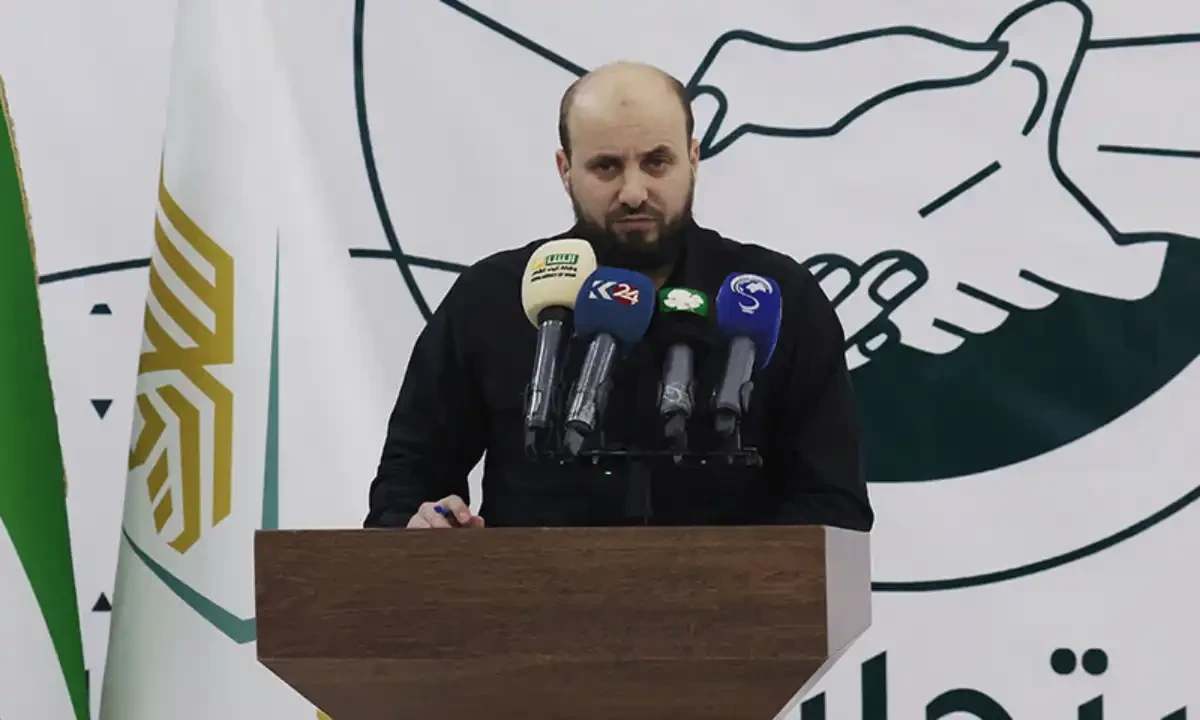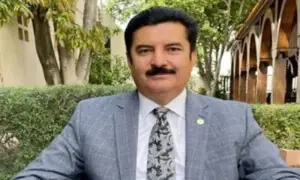79 Pakistani pilgrims evacuated as Syria establishes transitional government
At least 79 Pakistani pilgrims have been evacuated to Beirut amid significant political changes in Syria, officials informed the federal cabinet on Tuesday as the West Asian country formed a transitional government.
Seven out of around 20 teachers and students in Syria had also reached Beirut, according to a statement by state broadcaster PTV.
Officials informed the cabinet that the authorities of the Pakistani embassy in Syria and Lebanon were taking all possible steps to ensure the safe return of citizens from Syria.
Earlier, Prime Minister Shehbaz Sharif said he spoke with Lebanon PM Najib Mikati on Monday evening to coordinate the return of “some 500-600 Pakistanis” from Syria via Beirut.
The premier quoted PM Mikati as agreeing to the request readily and assuring that there would be no visa-related issues. The government was suggested to schedule chartered flights through Lebanon’s Beirut-Rafic Hariri International Airport, PM Shehbaz said.
The prime minister recalled that he contacted the Pakistani envoys in Syria and Lebanon, with the latter confirming he spoke with PM Mikati about the matter.
PM Shehbaz called the return of 250 Pakistani pilgrims as well as 300 others, including students and teachers, a “matter of concern”.
Deputy Prime Minister Ishaq Dar was in touch with Pakistan’s ambassador in Syria for the repatriation of citizens, the premier noted.
Meanwhile, state media reported that Syrian rebels have appointed Mohammed al-Bashir as the head of a transitional government, which will be in place until March 1. This announcement follows the start of talks on transferring power after the ousting of former President Bashar al-Assad.
Assad fled Syria as the opposition alliance took control of the capital, Damascus, marking a dramatic conclusion to over five decades of his family’s rule. His administration was known for its severe crackdown on a democracy movement that began in 2011, leading to a civil war that has claimed 500,000 lives and displaced millions, many of whom sought refuge abroad.
In a brief address on state television, Bashir, who previously managed a small administration in a rebel-held area of northwest Syria and is largely unknown to the broader public, stated that he would lead the interim government until March 1.
Rebel leader vows to pursue former officials for torture, war crimes
Meanwhile, Syria’s rebel leader vowed to pursue former senior government officials responsible for torture and war crimes, a day after he began talks on the transfer of power.
“We will not hesitate to hold accountable the criminals, murderers, security and army officers involved in torturing the Syrian people,” al-Jolani, now using his real name Ahmed al-Sharaa, said in a statement on Telegram.
“We will offer rewards to anyone who provides information about senior army and security officers involved in war crimes,” he said, adding the incoming authorities would seek the return of officials who have fled abroad.
Sharaa held talks a day ago with outgoing prime minister Mohammed al-Jalali “to coordinate a transfer of power that guarantees the provision of services” to Syria’s people, according to an earlier statement on Telegram.
War monitor says Israel conducted 300 strikes on Syria since Assad’s fall
Even as some Syrians rejoiced and others rushed to search for loved ones in Assad’s notorious jails, Israel continued to carry out air strikes aimed at destroying the former government’s military capabilities, the Britain-based Syrian Observatory for Human Rights said.
Since his ouster, the Syrian Observatory for Human Rights said it had recorded more than 300 Israeli strikes.
AFP journalists in the capital Damascus heard loud explosions today, but could not independently verify the source or scope of the attacks.
The Syrian Observatory said that Israel had “destroyed the most important military sites in Syria” with a flurry of air strikes.
They targeted weapons depots, boats from the Assad government’s navy, and a research centre that Western countries suspected of having links to chemical weapons production, it said.
Near the port city of Latakia, Israel targeted an air defence facility and damaged Syrian naval ships as well as military warehouses.
In and around the capital Damascus, strikes targeted military installations, research centres, and the electronic warfare administration.
Israel, which borders Syria, also sent troops into a buffer zone east of the Israel-annexed Golan Heights after Assad’s fall, in what Foreign Minister Gideon Saar described as a “limited and temporary step” for “security reasons”.
Lebanon’s Hezbollah, which had been allied to Assad, condemned the strikes a day ago and lambasted Israel for “occupying more land in the Golan Heights”.
For the latest news, follow us on Twitter @Aaj_Urdu. We are also on Facebook, Instagram and YouTube.

















Comments are closed on this story.